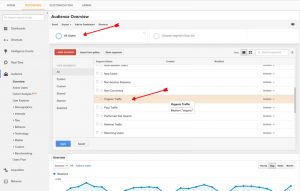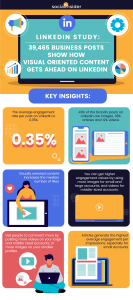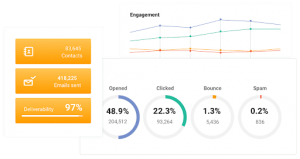 Social media goes through so many changes every year that it’s possible someone could even make a career out of pointing out those changes and what they mean for digital marketers. Please excuse the cute sarcasm whilst I bring you the latest series of changes from Facebook, and what those changes could mean for businesses and marketers.
Social media goes through so many changes every year that it’s possible someone could even make a career out of pointing out those changes and what they mean for digital marketers. Please excuse the cute sarcasm whilst I bring you the latest series of changes from Facebook, and what those changes could mean for businesses and marketers.
No Such Thing as a Free Ride
 At least not forever. That’s the message that’s been coming through loud and clear from Facebook over the past year and a half. In the infancy stages of social media marketing (and well into the toddler, young child, pre-teen, and teenage stages as well), businesses started jumping on the train as it rode past and essentially getting a free ride down the tracks, complete with free advertising and low-to-no-cost acquisition of new customers.
At least not forever. That’s the message that’s been coming through loud and clear from Facebook over the past year and a half. In the infancy stages of social media marketing (and well into the toddler, young child, pre-teen, and teenage stages as well), businesses started jumping on the train as it rode past and essentially getting a free ride down the tracks, complete with free advertising and low-to-no-cost acquisition of new customers.
That’s over, so forget about it and move on. If you’re late to the party and have just recently decided that now is the time to join all of the tech-savvy businesses out there and get in on the Facebook gravy train, I’m sorry to tell you that you missed that boat. In fact, it’s already docked in its destination port and deboarded all the passengers, with strict instructions to come back only when they have some funds or really, really good content to share. Preferably both.
Anyone who thought that Facebook’s move to get businesses to pay for advertising via promoted posts was an experiment that would be short lived was a victim of wishful thinking. Now it’s time to stop hoping and adapt.
The Good, The Bad, and The Ugly

There are three changes happening with Facebook’s News Feed in the coming days and weeks. The first is actually a positive for publishers, if they have a subscriber base. In the past Facebook didn’t allow for multiple posts from the same publisher during a visit to your news feed.
That policy is being “relaxed”, so that if a user is subscribed to a Page and interacts with the content from it regularly (in other words, it’s obvious that they like it) they will be able to see more than one post from the source IF they “run out” of content. This mainly applies to users that like less pages.
The next change will be welcomed by the everyday Facebook user, as it definitely moves the site further from the advertising side to the social side. The posts from your friends will now be prioritised and moved to the top of your feed so you don’t miss them. Content from Pages and news items will still show up. they’ll just come further down the feed. (I just heard your mom and grandma squeal with excitement).
Finally – and if this were a multimedia presentation you would now be hearing the “dum dum dum dummmmm” from Beethoven’s 5th – comes the pill that is hard to swallow. In response to user feedback, you will no longer see posts that your friends have liked or commented on. This form of second-hand interaction has been a great source for publishers to find new fans, but no longer. So where do these changes leave you as a marketer?
Adapt and Overcome

It leaves you squarely in the space of adapting. Social media success is constantly about adapting to the changes, but as these platforms come into their adult stages it’s more necessary than ever. So going back to my first point, the free ride is over. You’re going to have to start budgeting for promoted posts on Facebook and other forms of social media advertising if you want to stay in the game.
You’re also going to have to concentrate less on post likes and more on Page likes and shares. No one is going to see your content just because their friends liked it. You’re going to have to go after fans and followers more directly and stop relying on second-hand and referral traffic. That means stepping up your marketing game, from using high quality tools like a social media dashboard to creating more interesting and relevant content. If you’re still looking for a job that requires little to no work and effort, I’m pretty sure the government’s always hiring.
(164)
Report Post







